
Doves. Andy Williams: “We’re always quite aware that we want to try and make a record that you can listen to from start to finish.”
From Sub Sub’s ashes on to chart-topping albums, Andy Williams traces the band’s incredible journey and discusses their latest record
Doves, the indie band quite literally born out of the ashes of dance outfit Sub Sub, have returned with their first new music in over four years. Renegade is the first single to be taken from their upcoming sixth studio album Constellations For The Lonely and finds that the trio of Jimi Goodwin, Jez Williams, and Andy Williams still have the knack of balancing the ominous with the uplifting, building rich soundscapes that burst out from their pop-rock foundations.
It’s that ability to match the melancholic and melodic that made Doves such an interesting proposition when they first arrived on the post-Britpop scene of the early 00s. Armed with an array of ear-wormy songs such as There Goes The Fear, Pounding, and Black And White Town, the Wilmslow/Manchester outfit showed they were far more than purveyors of standout singles, delivering albums that felt immersive and enduring – indeed, records like Lost Souls, The Last Broadcast and Some Cities have aged far better than those of many of their contemporaries.
With each of the Williams brothers and Goodwin contributing their songwriting talents to the band’s sound, it’s Andy who raised his head above the parapet to talk us through Doves’ early days and the creation of the new record…
More interviews with songwriters
I remember reading about the story of how the studio caught fire, and I tell that to this day, almost as a parable for how, sometimes, out of adversity comes the birth of something that was meant to be. Can you take us back to that pivotal moment in the genesis of Doves?
“That was a studio we had in Ancoats in Manchester as Sub Sub. We took over the studio; it was quite a famous studio for Mancunian bands called Out Of The Blue. We took over the lease with the money from Sub Sub’s Ain’t No Love (Ain’t No Use). We lucked out in a lot of ways, that we were on a major before that, we got dropped by the major and Rob Gretton picked us up.
“I remember him saying, ‘I can’t spend any money on you whatsoever, but I will support you.’ We didn’t really have any money, so Ain’t No Love… came by accident. It was a sample off a record that I won at a fair. I’ve always been a collector of vinyl, so one afternoon, me and Jez were going through loads of records, looking for samples. I’m picking that up and going, ‘It can’t have anything on this,’ because it was quite obscure, an unofficial version of Hair the musical; not a bootleg, just somebody else had done a version.
“We put it on and were like, ‘Woah, that’s cool.’ At the time, we had an Akai S950 [sampler]. Next time Jimi came over he went, ‘Cor, that’s a good groove,’ and we built it up. He knew Melanie Williams [singer of Ain’t No Love]; it happened very organically. But anyway, to cut a long story short, we had a hit with that record and didn’t really see it coming at all. It had a life of its own. Without that record, I think we would have been doomed with Sub Sub, we were running out of money, opportunity, the whole lot.”
Were you DJing and stuff back then, was it was very much electronic or were there shoots of any sort of band?
“Not yet. I mean, we all come from that background, when we were at school together. We lost touch after school, and we met up again, bumped into each other… But at school, we were always guitars and drums. We grew up on bands like The Smiths and New Order. Then the dance thing happened. We got swept talking along with acid house and the rest of it.
“By this point, we were still very much into the electronic side of samplers and keyboards. Luckily, we had some money, so we rented this studio. It’s where we did a lot of the tracks. We put out an album, from what I remember, with Ain’t No Love… on there and it didn’t really do anything.”
What happened next?
“There’s this idea that the studio burned down and we all picked up our instruments and started again, but it wasn’t quite like that. We were already morphing into… I think we got bored of all sitting around the keyboard. With the three of us, there was one at the Atari, one at the keyboard, and one person making the brews. We started to get tired of that, we did start morphing.
“We went to see Supergrass at The Haçienda, and it was early days. This would have been about ’94. I’m not saying Supergrass was the big inspiration, because we were all really into music, but the energy of that live gig – I remember that being one moment where we were all a bit like, ‘That looks pretty good fun up there!’
“We’d been gigging as Sub Sub before that, doing the raves. We always thought of ourselves as a semi-live band. We’d go to these raves with maybe some congas or something, and the club would be going, ‘Just plug in your DAT and mime!’ and we were like, ‘How dare you!’ So, we had started by that point.”
How did it develop from there?
“We did a couple of tracks. Jimi knew Bernard Sumner because he’d started doing some session work with Electronic… By this point, we were playing our instruments a lot more. We started morphing. Funnily enough, the track we did with Bernard Sumner, called This Time I’m Not Wrong was with a lot more acoustic instruments. We had started changing.
“Then, the track we did with Tricky [Smoking Beagles], was the last thing we did as Sub Sub. He came up, we had this crazy night at The Haçienda, went back and recorded; the usual thing, stayed up all night. Then the week after, the studio burned down.”

Andy and Jez Williams of Doves. Andy: “We don’t ever want to feel like we’re a bit stale or repeating ourselves.” Photo: David Filipponi
Did I read that it happened on your birthday?
“Yeah, mine and Jez’s birthday. We’d been out celebrating, as you do, and we used to get false alarms, but the alarm was going off, again. We’d all got back from celebrating, and got this call. I was like, ‘Come on, it’s just another false alarm.’ Jez, all credit to him, said, ‘I’ve got a bad feeling about this,’ and everything had basically gone up in smoke.
“So that was then like, ‘Right, okay, what are we gonna do now?’ It was dodgy for a bit, but we also knew that we didn’t have anything else we could do. It wasn’t like any of us had degrees or a desire to work in Asda. Luckily, we had this little bit of cushion money from Ain’t Not Love.
“Looking back on it, getting dropped by Virgin Records at the time was one of the best things we ever did. We were on Rob’s Records and, although Rob didn’t give us any money initially, it was the old Factory Records ethos of, ‘I’ll split everything down the middle with you.’ Normally, that’s 50% of fuck all. That’s what we were expecting.”
But you had some decent royalties coming through at that point?
“We sold three quarters of a million 12-inch records and got half of that. We really lucked out with that and we had a little cushion of money. We got insurance, luckily, eventually, for all the stuff. That’s when it was very much, ‘Right!’ Jimi wanted to keep the name of Sub Sub and me Jez said, ‘No, it’s time for a change.’
“Always with this band, because there’s three of us, majority wins. The number of times where I’ve not been the majority, I’ve gone, ‘I think we should do this,’ and the other two [disagreed], but this, it felt like a new name and a bit of a new start.
“It was also to differentiate from using guest singers. Jimi, reluctantly, stepped to the front, after a few people were saying we should do that. It was almost like a full stop to Sub Sub – Jimi’s gonna front stuff now.”
I remember seeing you at Glastonbury and you rotated your roles in the band and you coming from behind the kit and swapping with Jimi, but still the dynamic of the band was there – how did Jimi end up as the focal point?
“It was stumbled upon. Jimi used to play drums. I struggled really with playing drums and singing at the same time. We’ve always had that ethos, always from day one… Jimi’s never been particularly comfortable being the front person, he wants to be within the band, so we’ve always had the thing that no one member is greater than the whole. It has been very much a band, as opposed to one songwriter and the other guys all falling in. We were quite lucky with this band of three songwriters.”
How did that come about, especially on those first songs on Lost Souls?
“After the fire, we decamped to Cheetham Hill, which was New Order’s old rehearsal room. Because we were signed to Rob’s Records, Rob was like, ‘New Order don’t want to go in their place.’ It was a pretty grim studio up in Cheetham Hill. We’d just grind it out. We’d go in five days a week, eleven ‘til eight, or sometimes the odd graveyard shift, and we’d grind it out. We’d just keep writing songs.”
Were you jamming, was it democratic, would someone come in with the initial ideas?
“Yeah. I mean, me personally, I started getting more into the lyric writing, which is one of my roles within the band. I’m a big fan of people like Leonard Cohen, my upbringing was bands like The Smiths. Obviously, I love the drums, but I also have this thing that I love the written word. That’s something I developed myself, even away from the band.
“Jez is a powerhouse, in terms of musical ideas. He’s always got something on the go. Jimi, he comes from a quite different place, to a certain extent, than us, musically. It’s something I’ve grown to really appreciate over the years. We used to have these quite heated discussions between us, all sorts of ridiculous… because we also come from the post-punk thing. There was a rulebook of, ‘That’s cool,’ ‘No, that ain’t cool.’ We used to have these daft arguments.
“Jimi got very much brought up on his dad’s records collection, very eclectic. Me and Jez were brought up on our elder brother’s record collection, slightly more narrow, actually.”
So a melting-pot of ideas coming together?
“There was always something. Jimi’s got a bass riff, Jez has got guitar riff. By that point we’re using keyboards, so one of us will have a keyboard riff. We’d jam it out sometimes; I think we would jam it out around in those days, but as time has gone on, generally a lot more so the stuff doesn’t come from jamming, it comes from a person bringing an idea to the table.”

Doves (left to right): Jez Williams, Jimi Goodwin, Andy Williams. Andy: “Always with this band, because there’s three of us, majority wins.” Photo: Brian David Stevens
Is that because back then there wasn’t any sort of pressure and you could just jam, was it then very different when you had the Last Broadcast and suddenly there were expectations? Was it then a case of asking who might have a song?
“We wouldn’t even have to ask, ‘Have you got one?’ It was, ‘I’ve got this!’ If you’re talking about The Last Broadcast, and specifically, There Goes The Fear. We were very much buoyed by Lost Souls. We’d got a new deal. Because Rob’s… we felt at that time, we had a few labels knocking on our door, and we felt about it was almost our last chance to do something.
“We loved Rob, but we weren’t totally confident that they could… because they didn’t have proper distribution, we didn’t really feel like they could make this record work. We had some majors knocking on our door and started gigging then. This is when we met Jeff Barrett from Heavenly Records, and Martin [Kelly], and we realised there’s a different way.”
“We put the record out. not a lot of great expectations, and it gets to No 16 in the charts. ‘Fucking hell, we’re in the Top 40.’ And the reaction to it, it really landed. Weirdly with that record, even more so over the years, people are still discovering it now. But we were really, ‘Wow, maybe we can do this. Maybe we have got a future,’ so we were very much buoyed by that.
“So we toured the world for Lost Souls. We didn’t have high expectations. We went to Japan, went to Australia, you know, and toured the world. It really geed us up. When it came to talking about doing the next record, Jez was already on it. Jez had …The Fear, musically. He had it. He lived in Northenden at the time; quite a basic setup. It was very early doors, that might even have been one of the first songs from The Last Broadcast, done really hot off the heels… The Last Broadcast was our fastest record, and came together over a year.”
And that came out in April 2002?
“We toured Lost Souls for a whole year. We were together from 2001. We all listened to a lot of music. I remember I had M62 Song, because I’d seen a film, and I loved this King Crimson piece that it was kind of inspired by. Jimi had stuff. We’d all been working separately. We all had very basic setups at our houses, and on the road, and we all came with stuff, like 30 ideas.”
Did you still write together?
“There have been times where we write lyrics together. I remember The Sulphur Man, which is off The Last Broadcast. We were at Jimi’s house and I wanted to present a scenario and the others could fill in the blanks. So it was, ‘This is what it’s about, this song,’ not that we’ve got a board going up. I think that song, I had the title The Sulphur Man, and that’s what the starting point was. So, who’s The Sulphur Man, what’s going on? That was a collaborative thing.”
Does that make it easier to collaborate, because it’s not about you?
“Yeah, I think so. Also, we’re always trying to steer away from self-pity – a trap we all can fall into, especially when you’re songwriting. We always try and avoid that if possible.”
In terms of trying to keep an optimistic tone to what you’re doing?
“I know we’re known for a bit more melancholic stuff, but we always try and… if the lyrics are quite dark, we’ll try and have the music quite uplifting.”
l love your music, because I find it uplifting but, melodically, some songs are very plaintive…
“It’s weird, as you get older, you start thinking where that comes from. You’ll hear comments and its very interesting how people perceive your music. Over the years, there’s definitely a Celtic thing going on. Jimi’s got Irish family and we’ve got Irish family. It’s weird that we met this other person, and we’re all very much drawn to this melancholic music.
“My mum used to pay Irish music around the house, and I know Jimi’s dad did. Without us ever actually saying that to each other, I do think that comes from that; it’s almost built into us.”
Lost Souls, The Last Broadcast, and Some Cities feel like they go together. Then Kingdom Of Rust felt less immediate, and the same with The Universal Want. Having now listened to your new song Renegade, is there a difference in how you approach the music and songwriting?
“Especially this new album, we have all written separately. We do pool, we have always done that, but I guess that’s progressively become more of a thing over the years. Somebody will bring in the music, generally. It’s been a while since we’ve actually cooked something up between all three of us, from the ground up. It’s not something we’d ever rule out. But yeah, either Jez is bringing in some music, me, Jimi…
“For instance, on this album there’s a song called Stupid Schemes, which is pretty much all Jimi. Then you’ve got a situation like Renegade, where it was my chords, my vocals, but I hit a bit of a brick wall on it. I played it for Jez and he went, ‘Right, I’ve got an idea for this.’ We took it to the rehearsal room and Jimi already had the idea, the theme for the song. We were trying to go for a Scott Walker vibe, all three of us love Scott Walker. I can’t remember who suggested Piccadilly Circus, but Jimi said, ‘How about Piccadilly Gardens?’ Piccadilly Gardens is central in Manchester, and that, again, shifted the lyrics a bit.”
The lyrics to that song are very Doves…
“You mentioned about filmic. We love Blade Runner. It’s almost like, ‘What would happen if Blade Runner was set in Manchester?’ The chorus, I stole the line from Blade Runner, which is, ‘If you could have only seen what I’ve seen with your eyes, then you will know that everything expires.’
That could almost be a lyric that you’d have on Lost Souls, with that feeling of expiring and mortality…
“Absolutely, mortality, definitely. Once we got that idea, it was like… Piccadilly Gardens in Manchester is a bit of a shithole where you have to watch yourself. Every few years they spend hundreds of thousands of pounds doing up the area and then, inevitably, four years down the line they have to flatten it.
“Blade Runner is set 200 years in the future. What’s gonna be different? All sorts! There’s gonna be flying drones and stuff, but Piccadilly Gardens will still be the same and it’s still gonna be raining.”
Tell me about the hiatus Doves had, and you and Jez working on Black Rivers – did that inform or change anything when you came back to Doves?
“It was really good fun, although we were playing smaller venues and loading the van again, all that. We did really enjoy it. I think it was needed; you know, Jimi was doing his own thing. As you’ve probably read, Jimi’s had his issues recently, over the last few years.”
That’s one thing we pride ourselves on, we’re not about gossip and personal lives, it’s about the songwriting. We don’t have to talk about that, unless it influenced things musically, in terms of what you’re doing with this album?
“There’s lyrics in there that reference… again, whilst writing them, it wasn’t, ‘Let’s write about ourselves,’ but looking back there’s little signposts in there where, from my side, maybe I’m referencing it, and I’m sure Jimi the same.
“But Black Rivers, we really enjoyed that tour. We had really good fun and me and Jez are very proud of that record. We did quite a lot of touring with that record. We came back and Jimi was in a better space. Around 2018 it became apparent that Jimi was really keen to start working again. We were too. It was a real pleasure to make that record. It happened really quickly. All three of us had a lot of material. It was great being back in room together, good times. For us it happened quite fast.”
Was it like nothing had changed?
“It was realising we still have a lot to say. We don’t ever want to feel like we’re a bit stale or repeating ourselves. Luckily for us, when we do get in a room together there’s always something to say, and there’s always a momentum of its own. It’s the same for me and Jez.
“This record, if I’m being brutally honest, it’s been quite a lot of me and Jez in the room keeping the ball rolling and then getting together with Jimi every now and then. There’s always momentum. We’re never really scratching our heads. Not all songs make it. Always with us, there’s probably more songs that don’t make it than do make it.”
Is it almost a case of auditioning songs to get to that point where you’ve got a collection of songs that can work together?
“Absolutely, and it’s like ‘Well that song’s not really sitting in there.’ Even with this record, there’s one or two songs which we really like, but they just don’t sit with the others. We have done that before, left off really good songs. Like off Lost Souls, in retrospect, a song called Darker, that should have been on there.”
Was it not one of the B-sides?
“It was, yeah. And it would have made the album too long actually. We’re always quite aware that we want to try and make a record that you can listen to from start to finish. These days, that’s quite an old-fashioned thing to want really. For good or bad, at the time, if we feel like a song’s not sitting in the narrative of the album, we will leave it off.”
Has the album as an art form changed for you?
“There’s still something about ten songs, you know? All right, you can do a great song, a brilliant thing, but as an artist or a band, you still want some statement in terms of, ‘Here is our world.’ I don’t know, maybe you can get that from one song. But real artists, someone you love, you don’t want to just hear one song, you want to hear, ‘This is my world’””
You were talking about Blade Runner and writing filmically, have you done any soundtracks, or is that something you’d like to explore?
“Not really. We’ve never really had the opportunity. We’ve never had a serious request.”
That surprises me, because there’s so many times where your songs get used in bed tracks on TV montages…
“It’s been our bread and butter, thank God, and paid many a gas bill. It’s something we would definitely not ever rule out. We once had a day where we were in the studio, and Martin Rebelski, who plays live with us, brought down his modular synths. I said we don’t ever jam, but we had a day of jamming, just for the hell of it.
“It was quite filmic what we did, listening back. It was very sprawling. Hours of it, us mucking around. It was all instrumental and we thought, ‘Wouldn’t that be really good fun to try and do that with some images?’ We’ve never really been asked. It’s a different world that, isn’t it? There’s quite a lot of people-pleasing. Quite often the film companies are paying for it and they want people with a proven track record.”


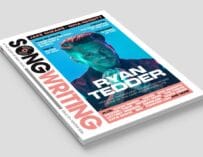
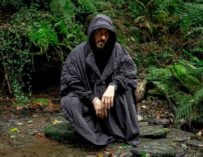
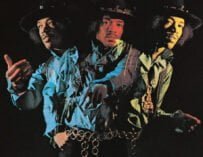

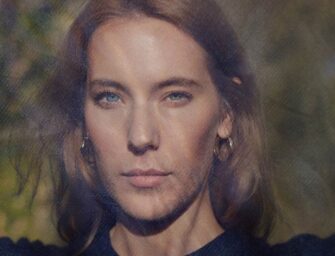
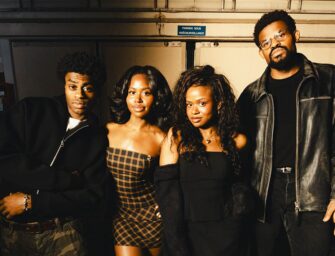


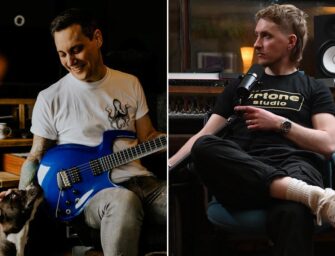
























Related Articles